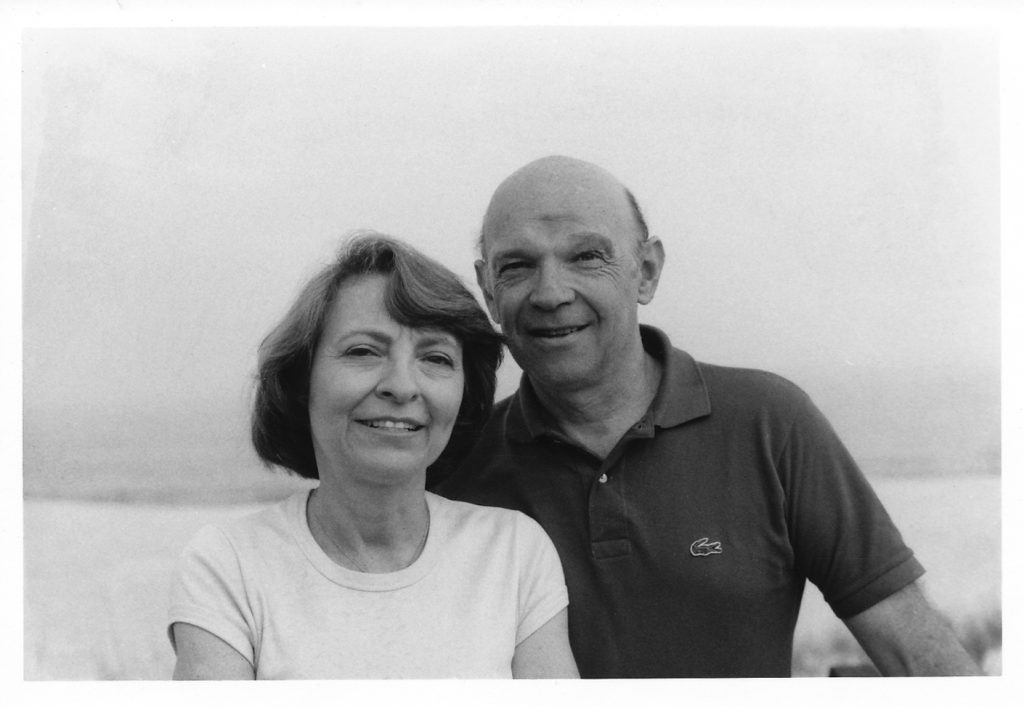You may notice at this point that I have yet to offer any tangible advice on dealing with or coming up with ideas. That’s right: I’m stalling. Writing about ideas is really hard. Giving advice on developing ideas is nearly impossible. But I started down this rabbit hole, so let me give it a shot.
Back at the beginning of this calendar year, when I started the Writing-Tip Wednesday feature, I asked folks in my Facebook Group for ideas about what subjects I should cover. I have written about most, if not all, of the suggestions that came in at that time, so I would like to begin today’s post by renewing my call for suggestions. Please, if there is any topic you want me to cover, let me know and I’ll do my best to turn it into a Wednesday post.
Today, I would like to take on an amorphous topic: ideas. I am asked all the time, “Where do you get your ideas?” And whenever I’m asked, I come up with some vague answer that goes something like, “Ideas come from everywhere. Writing, particularly writing speculative fiction, is an exercise in asking ‘What if?’ What if we put magic in this historical period? Or what if we take an island world with kingdoms and early flintlock technology and add time travel? Or what if we blend werewolf dynamics with detective-noir storylines and issues of mental health? “What if” is a powerful question, one that can take us to entirely new worlds.”
Or, in response to “Where do you get your ideas?” I might say, “Different stories come from different places. Sometimes I key in on a specific character and grow a story from there. Sometimes my imagination fixes on an element of a magic system, or some other worldbuilding element, and suddenly I’m plotting out three books. Sometimes I’ll visualize a scene – some key moment in a story I’m still discovering, and that’s the foundation for my next project.”
Both of those answers are true. Both of them reflect realities of my creative process.
But the truth is, in answer to “Where do you get your ideas?” I could just as easily say, “My ideas? Where do they come from? I have no fucking clue.”
 Ideas, many writers will tell you, are a dime a dozen. When I was just starting out in this business and still working on my very first series, the LonTobyn Chronicle, I worried that I would never have an idea for another project. When at last the idea for Winds of the Forelands came to me, I was both ecstatic and profoundly relieved. Today, my worry is not that I won’t have another idea; it’s that I won’t live long enough to write all the ideas I have. I’ve had people – folks who aren’t professional writers and who, frankly, have no sense of what the writing profession involves – say to me in all seriousness, “I have this great idea for a book. You should write it and we can split the royalties.” I usually say, with feigned politeness and more patience than I feel, “I have all the ideas I need, thanks. But it sounds like something you should write.” I WANT to say, “Dude, if you think coming up with some lame idea is half of what I do, you’re nuts.”
Ideas, many writers will tell you, are a dime a dozen. When I was just starting out in this business and still working on my very first series, the LonTobyn Chronicle, I worried that I would never have an idea for another project. When at last the idea for Winds of the Forelands came to me, I was both ecstatic and profoundly relieved. Today, my worry is not that I won’t have another idea; it’s that I won’t live long enough to write all the ideas I have. I’ve had people – folks who aren’t professional writers and who, frankly, have no sense of what the writing profession involves – say to me in all seriousness, “I have this great idea for a book. You should write it and we can split the royalties.” I usually say, with feigned politeness and more patience than I feel, “I have all the ideas I need, thanks. But it sounds like something you should write.” I WANT to say, “Dude, if you think coming up with some lame idea is half of what I do, you’re nuts.”
You may notice at this point that I have yet to offer any tangible advice on dealing with or coming up with ideas. That’s right: I’m stalling. Writing about ideas is really hard. Giving advice on developing ideas is nearly impossible. But I started down this rabbit hole, so let me give it a shot.
1. Don’t worry about where ideas come from. I won’t say it’s a stupid question, because it’s not. But the vague answers I offered above are about the best I can offer, and really the question is moot. Every idea has its own origin story, and no source of ideas is better or more valid than another.
2. Simple is okay. Been done before is okay. Even derivative can be okay. The other day I was listening to an NPR story about a new retelling of the Cyrano de Bergerac story. This is a formula that has been done to death, and yet here is a new interpretation of it that sounds fresh and compelling and that is obviously marketable. The idea is a starting point; sometimes it’s a framework as well. Ultimately, though, your characters and voice and style will define the story. Your setting and plot devices will set your work apart. Originality is born in the creative process.
3. Ideas can’t be forced. Except when they can. Yeah, I know – really helpful. But both of those statements are true. Ideas come on their own time, by their own volition. They take us by surprise, inspiring us with their potency and novelty. It’s a great feeling. At the same time, though, we can brainstorm, hastening those ideas, forcing them to the surface. It takes patience, but it can be done. I like to ask myself questions (beyond “what if?”). I will often open a new blank document on my computer and just start typing stream of consciousness. This approach doesn’t always lead to a great story, but it certainly can. Try it.
4. Great ideas keep giving. Some ideas lead to career-defining projects. Some fizzle. It’s not always obvious from the outset which is which. What’s more, we can be blinded by the power of that moment of epiphany when the first inkling comes to us. The test, though, is how the idea builds. I find that the best ideas I’ve had beget new ideas, one after another. The visualization of a scene, say, quickly leads me to a character, or two. And those characters introduce me to a magic system. Which begins to shape my world. Get what I mean? If an idea comes to me, but then just sits there, like an imagined lump, spawning nothing else, chances are it’s not that great an idea after all.
Ideas are slippery. They lack form until we give it to them. They need to be written down, because they will abandon us if we don’t give them our full attention right away. And, of course, there is no guarantee that even the best idea will lead to a bestselling book. But ideas are also the currency of this business, the things for which we quest, and the foundations of all we do.
And so I wish you a never-ending series of wonderful, fruitful ideas. And if I have a really good one, I’ll share it with you and you can write it. We’ll split the earnings…
Keep writing!










 Ideas, many writers will tell you, are a dime a dozen. When I was just starting out in this business and still working on my very first series, the LonTobyn Chronicle, I worried that I would never have an idea for another project. When at last the idea for Winds of the Forelands came to me, I was both ecstatic and profoundly relieved. Today, my worry is not that I won’t have another idea; it’s that I won’t live long enough to write all the ideas I have. I’ve had people – folks who aren’t professional writers and who, frankly, have no sense of what the writing profession involves – say to me in all seriousness, “I have this great idea for a book. You should write it and we can split the royalties.” I usually say, with feigned politeness and more patience than I feel, “I have all the ideas I need, thanks. But it sounds like something you should write.” I WANT to say, “Dude, if you think coming up with some lame idea is half of what I do, you’re nuts.”
Ideas, many writers will tell you, are a dime a dozen. When I was just starting out in this business and still working on my very first series, the LonTobyn Chronicle, I worried that I would never have an idea for another project. When at last the idea for Winds of the Forelands came to me, I was both ecstatic and profoundly relieved. Today, my worry is not that I won’t have another idea; it’s that I won’t live long enough to write all the ideas I have. I’ve had people – folks who aren’t professional writers and who, frankly, have no sense of what the writing profession involves – say to me in all seriousness, “I have this great idea for a book. You should write it and we can split the royalties.” I usually say, with feigned politeness and more patience than I feel, “I have all the ideas I need, thanks. But it sounds like something you should write.” I WANT to say, “Dude, if you think coming up with some lame idea is half of what I do, you’re nuts.” I am the youngest of four children, and by the standards of the time, my parents had me late in life, so I can say truthfully all of the following: I’ve always felt that I was too young to lose my mother, and I know that Mom died too soon, but I also know that she lived a full, rich life.
I am the youngest of four children, and by the standards of the time, my parents had me late in life, so I can say truthfully all of the following: I’ve always felt that I was too young to lose my mother, and I know that Mom died too soon, but I also know that she lived a full, rich life.

 But when do I consider the manuscript done? There is some truth to that first answer I gave. I consider all my books works in progress. My very first book, Children of Amarid, published in 1997 and recognized with a Crawford Award two years later, was, to my mind, never really complete. I knew for years that I could make it better. And when we finally got the rights back, I edited the book mercilessly (and did the same to its two sequels) and released the
But when do I consider the manuscript done? There is some truth to that first answer I gave. I consider all my books works in progress. My very first book, Children of Amarid, published in 1997 and recognized with a Crawford Award two years later, was, to my mind, never really complete. I knew for years that I could make it better. And when we finally got the rights back, I edited the book mercilessly (and did the same to its two sequels) and released the 